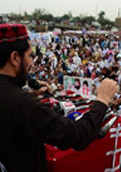The India-Pakistan conundrum: Sending the wrong signals
Research Associate under the Pakistan News Digest Project, IDSA, Dr Zainab Akhter’s article on Indo-Pak relations post Pulwama attack, titled ‘The India-Pakistan conundrum: Sending the wrong signals’ was published by the Asia Dialogue Journal, an online Journal of the University of Nottingham, Asia Research Institute.
Analysing whether Pulwama has sent India-Pakistan relations into an uncertain quagmire and if the mixed signals will push the relationship further towards uncertainty and chaos, Dr Akhter insists that it is high time that both the countries started to send the right signals.








